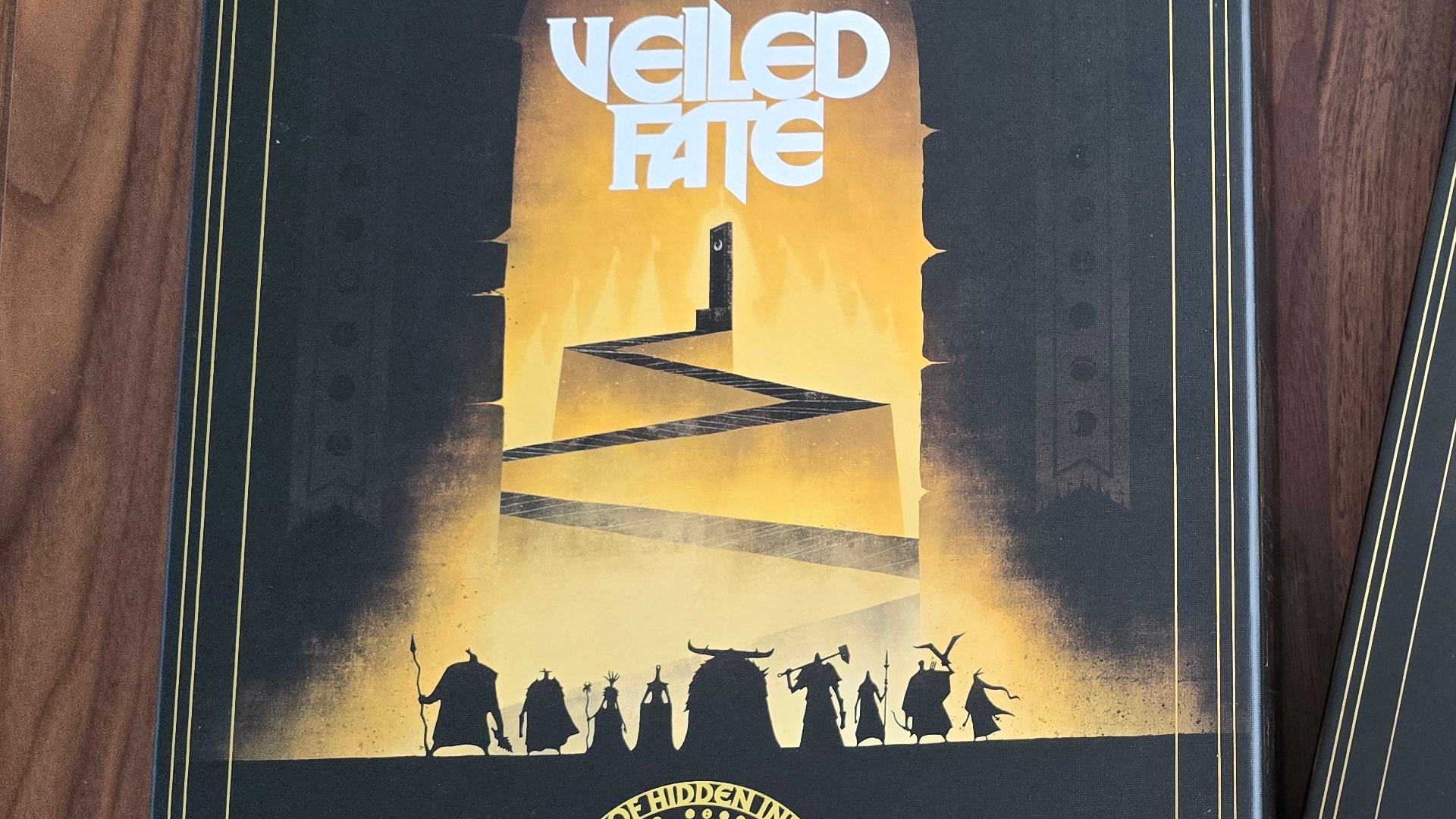The Long Walk ending explained: Who dies? Who wins the contest?
All your questions answered

The Long Walk is the latest Stephen King adaptation to hit the big screen, and it's finally arrived. The movie, based on the very first book that King ever wrote, stars Cooper Hoffman as Ray Garraty, a young man living in a dystopian society who enters a grim contest known as the Long Walk. The rules are simple: walk or die. Ray enters the contest with a specific mission in mind, but makes unexpected friends along the way. Directed by Francis Lawrence from a script penned by JT Mollner, the R-rated pic is as brutal as it is emotional, with unrelenting violence and devastation at every turn.
In case you forgot the rules, we'll remind you: the men must walk along U.S. Route 1 without stopping. Each Walker must keep his pace above 3 miles per hour, and receives a warning if he drops below this speed for 30 seconds. If he walks for an hour without earning another warning, the first one will be canceled out. If a contestant gets three warnings and fails to keep walking, he is eliminated. It's important to keep the rules in mind as we walk you through the ending of the film, and answer any questions you might have about the fates of Ray and his newfound friends.
Warning, this article contains major spoilers for The Long Walk, so make sure you are all caught up before reading on.
The Long Walk ending recap
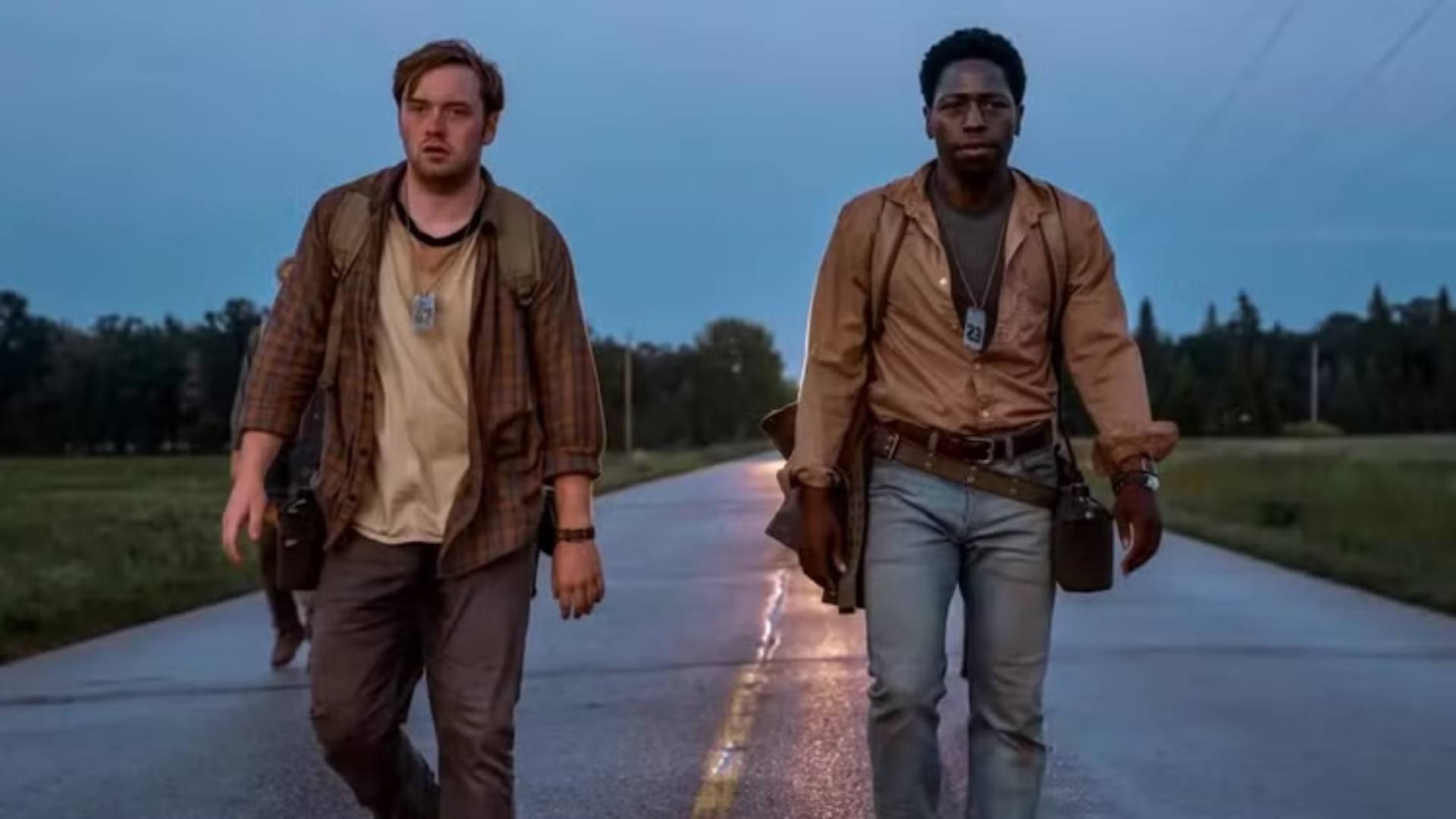
In the final act of the film, Hank Olson (Ben Wang), one of the few remaining contestants, begins to give in to his delirium. He runs at the soldiers' trucks, despite Art Baker's (Tut Nyot) attempt to hold him back. Ray Garraty (Cooper Hoffman) and Peter McVries (David Johnsson) beg Art to let Olson go, knowing that he's a lost cause. Baker returns to the group, and Olson is ultimately shot dead. Shortly after, we learn how McVries got the prominent scar on his right cheek – he was attacked by a dangerous individual who knew his way around a knife as an orphan. This incident changes McVries outlook on life – as he chooses not to blame his attacker for the event, but himself, vowing to become a force for positive change going forward.
As night turns to day, the remaining few are Gary Barkovitch (Charlie Plummer), Baker, Collie Parker (Joshua Odjick), Stebbins (Garrett Wareing), McVries, and Garraty. A frantic Barkovitch makes Ray assure him that they're all friends now, before pulling out a knife and slitting his own throat. A little while later, Baker realizes that his nosebleed is actually a hemorrhage (as pointed out by Stebbins) and that he's dying, so he walks to the soldiers' trucks to commit suicide. Parker attempts to revolt against the regime, grabbing a soldier's gun and successfully shooting one, but is ultimately killed.
The remaining three are Stebbins, McVries, and Garraty. Stebbins realizes that his cold is getting worse, and that he's running out of time. He reveals to Ray that he's actually one of the Major's many illegitimate children, and that he was entered into the contest as a "rabbit" (like the kind in a greyhound race) for the sole purpose of keeping the competition going for as long as humanly possible. Stebbins then stops voluntarily and allows the soldiers to shoot him. McVries and Garraty remain, and the two of them approach civilization together. As they walk past a crowd of people, McVries sits on the ground, ready to let Ray win the contest so he can carry out his plan of killing the Major in order to avenge his father. Ray tricks McVries, telling him the two will just keep walking. Instead, Ray sits down and is ultimately executed on live TV.
A horrified, devastated, and inconsolable McVries is declared the winner by a cheerful, upbeat Major. Once he regains composure, the Major asks McVries what he wants his prize to be. Stoically, he asks the Major for a gun. The Major says they'll get him one soon, but he asks for the soldier's gun so he can "give it to his son someday." McVries takes the gun and tells the Major to get down on the ground. The Major protests, but McVries declares, "This is for Ray Garraty," and shoots the Major dead. McVries then drops the gun and walks into the night, his fate ultimately unknown.
Bringing all the latest movie news, features, and reviews to your inbox
Who wins The Long Walk?
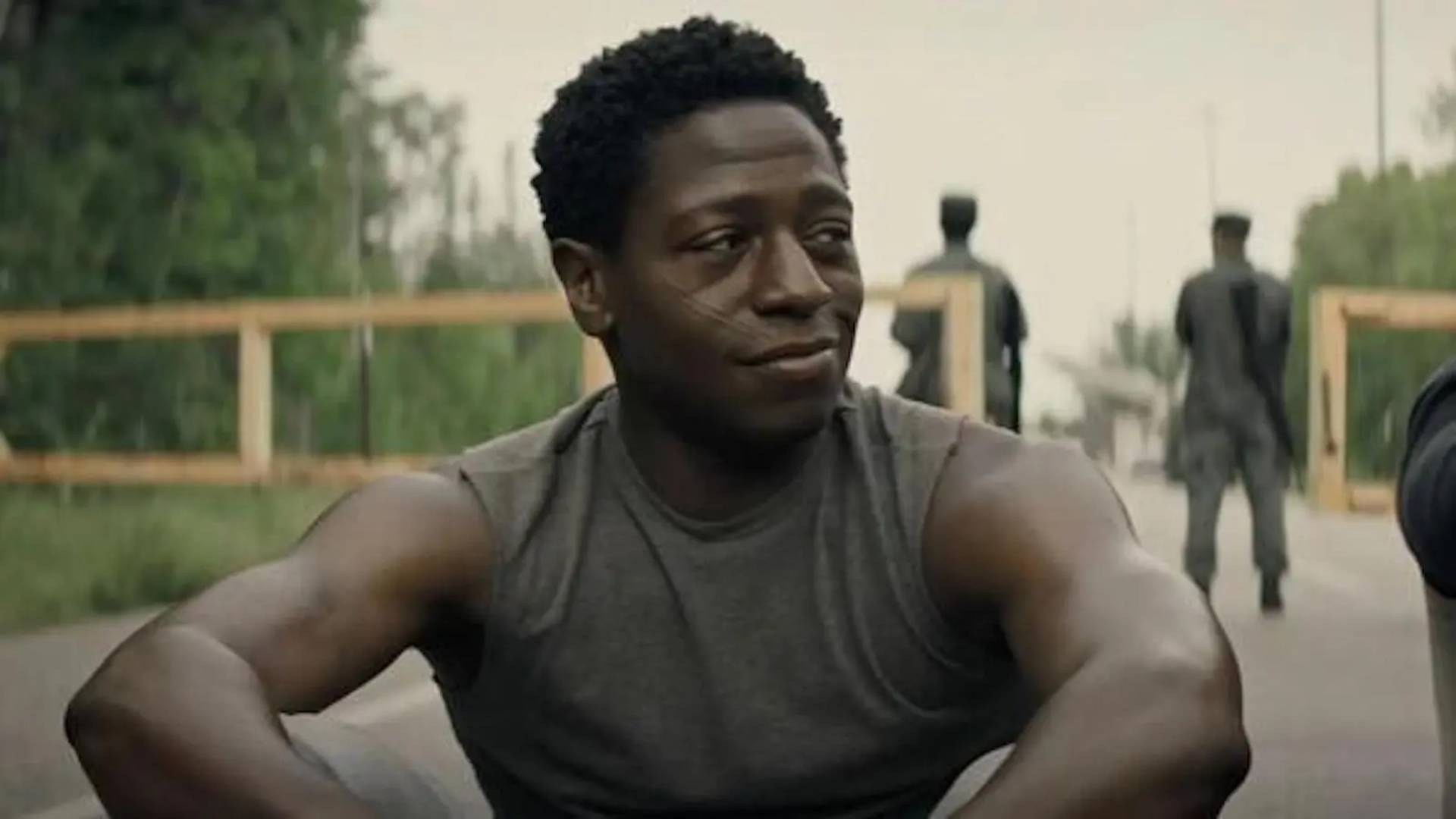
The winner of The Long Walk is Peter McVries. McVries initially sits down, ready to be shot by the military, so Ray can win the contest and live out his goal of getting revenge against the Major. However, Ray tricks him into walking again... and sits down to be executed before McVries can even protest. Devastated, he asks the Major for a gun and shoots him dead on live TV. The consequences of this action are unknown, as he drops the gun and walks into the night.
McVries has no family or home to return to, which is why he believed Garraty was much more worthy of winning the contest and was more than happy to die for his best friend. But Ray allows McVries to win because of the latter's attitude toward positive change in the world, despite the hardships of his life. Though we don't know what happens after McVries keeps walking, we do know that the death of the Major will change what's left of the United States as they know it, and could possibly free the citizens from the regime.
Who is the Major?
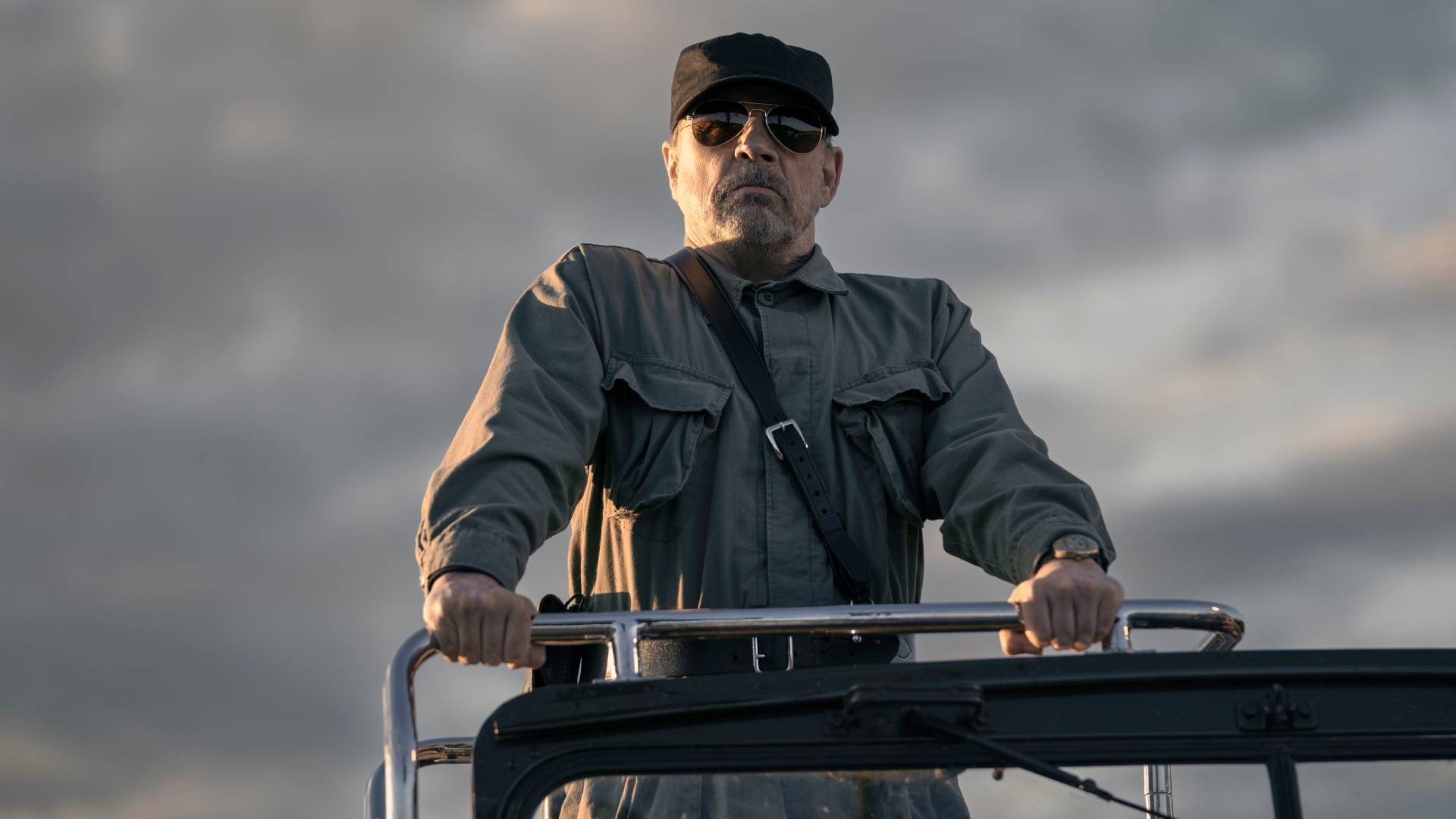
The Major (played against type by Mark Hamill) is the fascist military leader who rules what's left of the United States under a totalitarian regime. There isn't much information about him other than that he shot and killed Ray's father in front of him for letting him listen to banned music and read banned books, and ultimately for refusing to pledge his allegiance to the regime. We also learn from Stebbins that the Major has fathered several illegitimate children. Throughout the film, Ray, McVries, and the other boys speculate on past winners and prizes – though it remains unclear if the prize is even real.
Though the Major lives at the end of the book, he is shot dead at the end of the movie. The fate of the totalitarian regime, and the rest of the United States for that matter, is left up in the air. As for why he remains a mystery, Mollner says that he "didn't want to go too far with him" and that Lawrence agreed that the Major is the "only character in the movie that is more of a construct."
"There's this comment and this observation that's being made about authoritarianism and the Major encapsulates that," he tells GamesRadar+. "Trying to flesh him out would be very disloyal to the book, quite honestly. And we wanted to stay faithful to the book while still getting a little more from him. Hopefully, we found that balance.
What happens to Ray's mom?
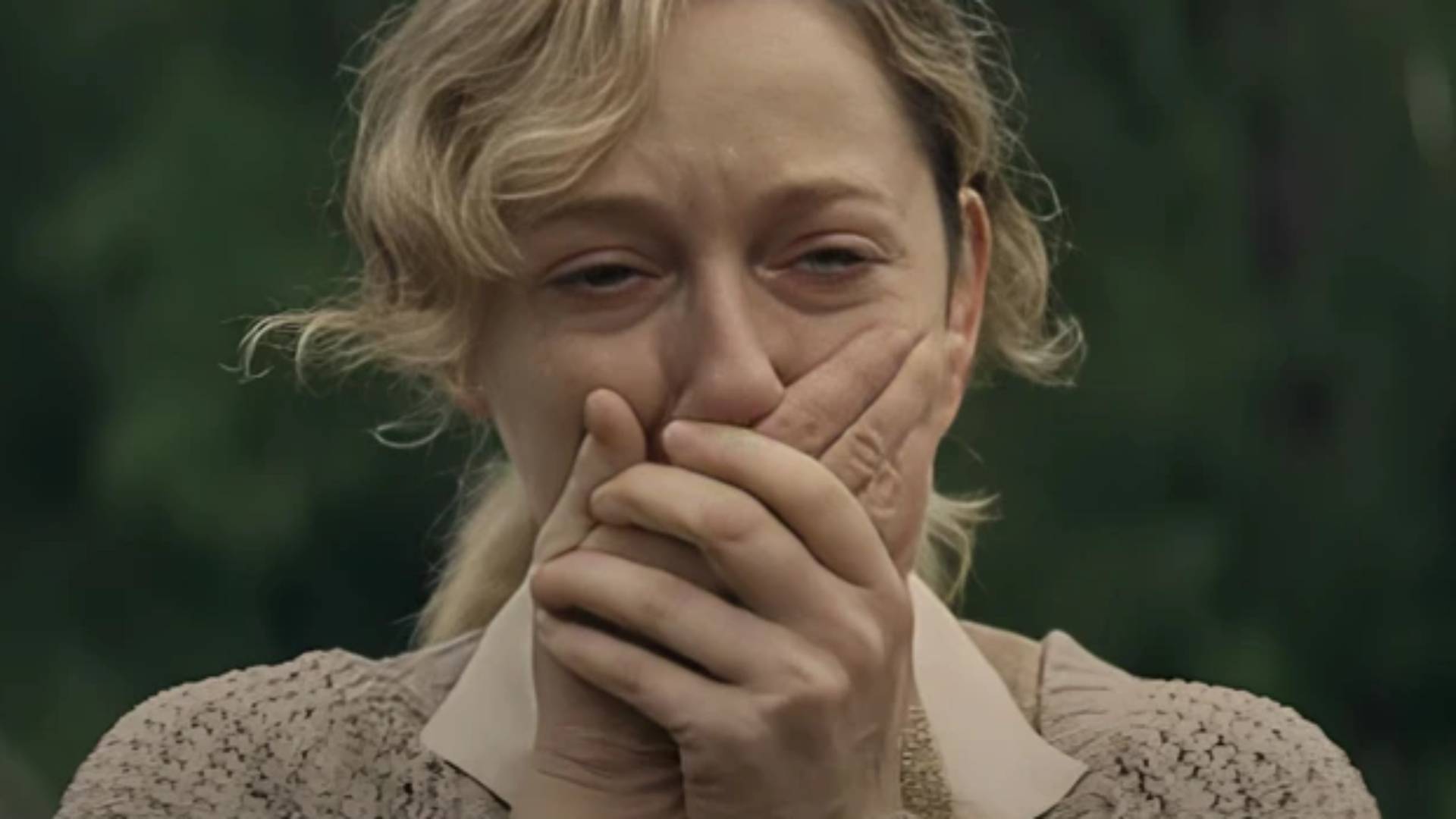
Though we don't see her when it happens, we can infer that Ginnie Garraty went home after hugging him one last time and watched her son die on live TV. It's unclear what Ginnie decides to do after this, save for the unimaginable grief she now has to endure.
It's worth noting that while Ray's mother is mentioned in the book, she isn't the one waiting for him on the sidelines during the contest. In the novel, Ray has a girlfriend named Jan, who, along with his mother, discourages him from entering the Long Walk. Halfway into the contest, Ray spots her in the crowd and runs over, as the soldiers raise their guns to shoot him dead. McVries pulls him back onto the road and tells him to keep walking. This happens in the film, though it's Ray's mother who is standing and watching.
Mollner says that Jan was in an earlier draft of the script, but it was Lawrence who made the decision to cut her out: "Francis came to me and he was like, you know, the girlfriend thing is muddied in the water. It's just distracting. It's not working, and you should really focus on the relationship with his mother. And I think it was a great note because I got rid of that, and everything else became more powerful."
Who dies in The Long Walk?
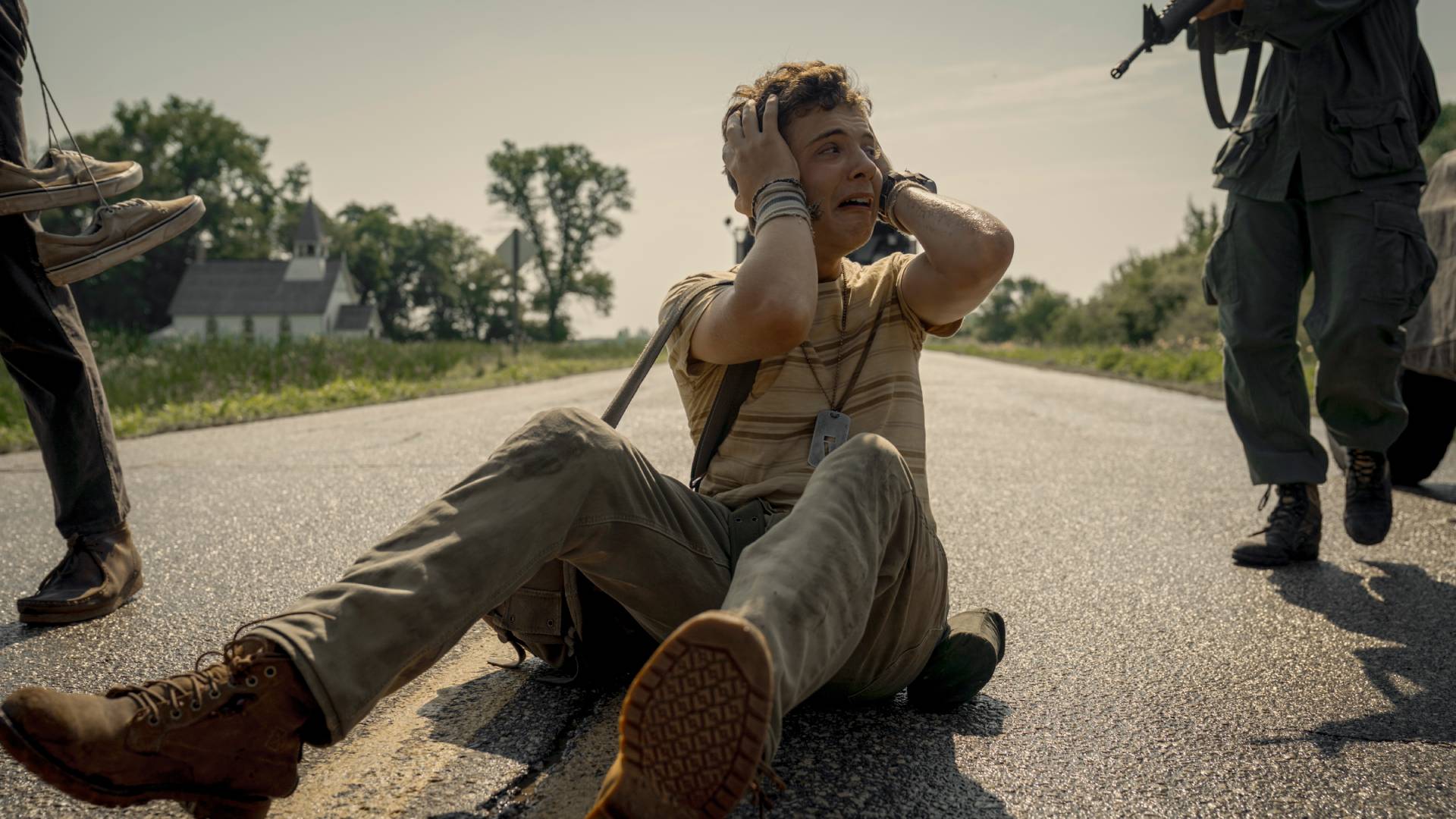
Around 50 or so deaths take place in the movie, although some happen off-screen (and we can only hear the gunshots in the distance). Nearly every death is due to execution by the soldiers, with something completely out of the walkers' control causing their speed to slow below 3 mph. The causes include diarrhea, heatstroke, having their legs run over by the military trucks, attempting to run away, and even bleeding to death. In terms of non-walker deaths, the Major is ultimately shot dead by McVries, using one of the soldiers' rifles.
The major and notable character deaths are listed below alongside the cause, in the order in which they happened in the movie:
- Thomas Curley - Had a Charley horse and sat down
- Rank – Got into a fight with Barkovitch and ultimately fell
- Richard Harkness – Walked on a compound fracture until he couldn't anymore
- Hank Olson – Delirium, runs at the truck to commit suicide
- Gary Barkovitch – Slit his own throat
- Art Baker – Hemorrhage
- Parker – Grabbed a soldier's gun in an attempt to revolt
- Stebbins – Becomes ill and lets the soldiers shoot him
- Ray Garraty – Sat down willingly
- The Major – Executed by McVries
What are the differences between The Long Walk book and movie?
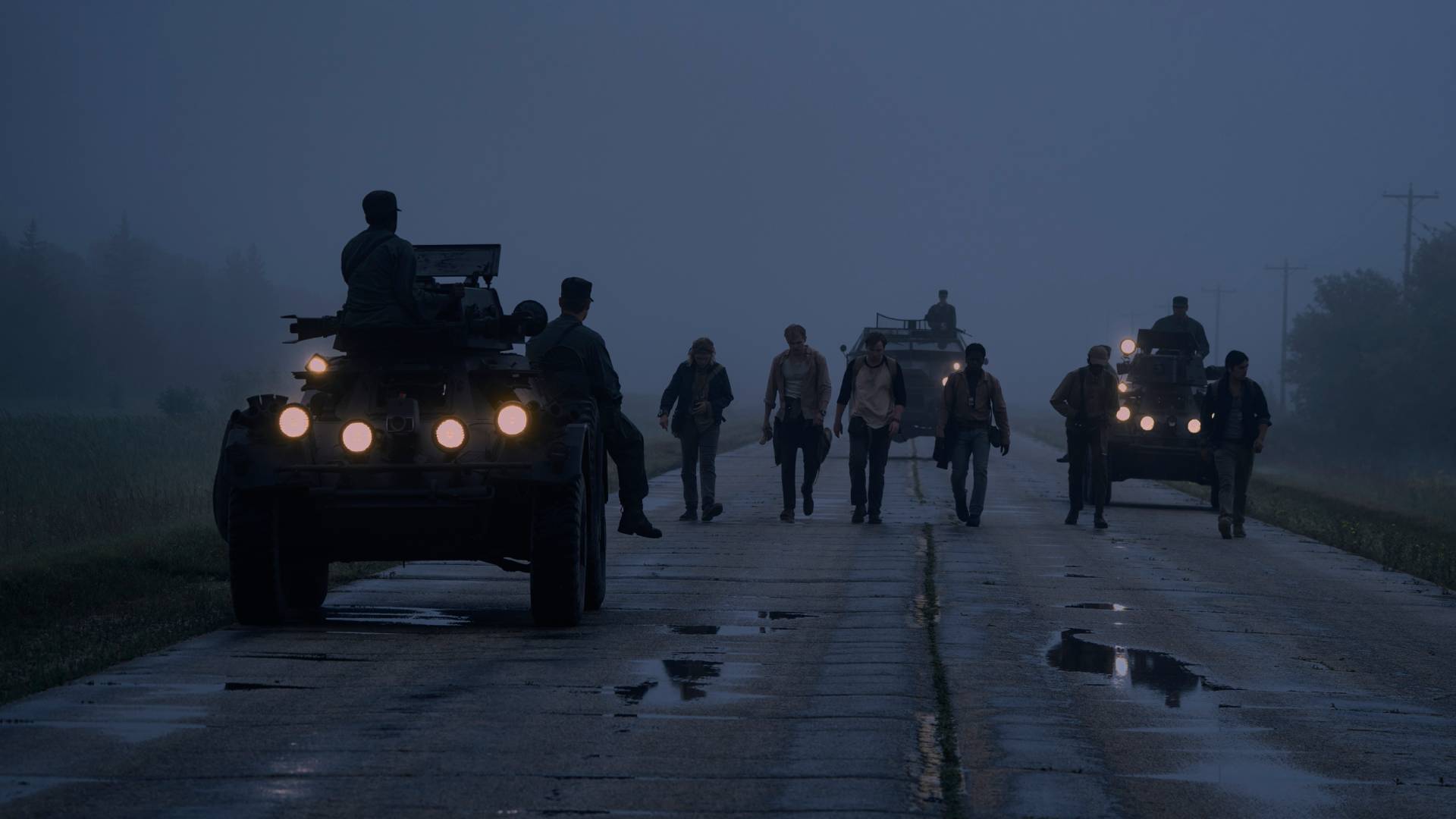
Mollner and Lawrence made several notable changes, all of which were approved by King himself. The most obvious change is the setting: rather than the wooded forests of Maine, the book is set in a desolate part of America (though it was filmed in Manitoba, Canada). Lawrence explained to SFX that this was done to both save a little money and also have a setting that reflected the desperation of the United States under this dystopian regime.
In order to make the story a little bit more realistic, Mollner changed the number of men in the contest from 100 to 50 and lowered the required walking speed from 4 mph to 3 mph. King revealed in a Reddit AMA that he asked Mollner to change the number, as he didn't realize until after the book's release that 4 mph was not the average walking speed.
In the book, Ray's father is taken away by the Major for being outspoken about his political beliefs, and specifically condemning the Long Walk. His fate is left unknown, although it's implied that he was killed. In the movie, his father is killed for letting his son read banned books and listen to banned music, on top of speaking out against the Major and totalitarian government they live under. The soldiers drag the Garratys out of their home and throw them onto the ground. The Major gives Ray's father one last chance to pledge his allegiance, but he refuses, telling Ray to never give up, and is promptly shot in the head. This is what motivates Ray to enter the Long Walk.
Ray's girlfriend Jan is also absent from the film, with his mother being bumped up to a more significant role. When Ray runs away from the contest for a brief moment, it's his sobbing mother that he hugs, instead of his girlfriend Jan. Mollner stated that she was cut after a note from Lawrence to focus more on Ray and his mother's relationship.
The ending is without a doubt the biggest change, with Mollner saying that there's no way they would've gone through with it if King didn't approve. In the novel, it's Ray who wins the Long Walk. After McVries sits down and is promptly executed by the soldiers, Stebbins remains. He breaks down and tells Ray that he's one of the major's many illegitimate children, and that he was selected to participate in the Long Walk in order to provoke the other walkers and keep the competition going for as long as humanly possible. Stebbins collapses and is ultimately shot. Ray is declared the winner, but doesn't stop walking. He ignores the Major and follows a shadowy figure ahead, which is presumed to be a hallucination due to his deteriorated state. The Major lives.
In the movie, Stebbins dies the same death, with the same revelation, but is the third to last to die. Ray is the one who sits down and takes the bullet. McVries, devastated while the crowd cheers on the death, is declared the winner. He asks for one of the soldier's guns and shoots the Major dead. He then walks out into the unknown, just before the credits roll. Though we don't see a shadowy figure, McVries' fate is left ambiguous and unknown, much like Ray's in the book.
"The goal was to make these changes without pissing off, uh, constant readers, because we wanted to keep the DNA the same, but also put something in that would surprise people who read the book, because why have the exact same experience twice?" Moller explains.
"It was a scary moment because I love the ending of the book, and the book is not about twists or surprises. It's just about these characters. There's an ambiguity to that ending. There's a hopelessness to it.
The reason we wanted to make those changes, is because not only did I find them interesting, I found that it was a way to really kind of personify and articulate the nature of love and relationships and and the best and worst human instincts and what you can be driven to in the same ten minute period with different characters, the same five minute period. "
The Long Walk is in theaters now. For more, read our The Long Walk review or check out our guide to all the upcoming Stephen King movies and shows you need to know about.

Lauren Milici is a Senior Entertainment Writer for GamesRadar+ based in New York City. She previously reported on breaking news for The Independent's Indy100 and created TV and film listicles for Ranker. Her work has been published in Fandom, Nerdist, Paste Magazine, Vulture, PopSugar, Fangoria, and more.
You must confirm your public display name before commenting
Please logout and then login again, you will then be prompted to enter your display name.
